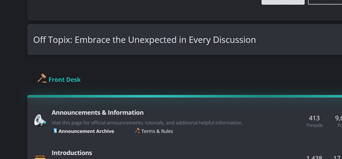- Thread Author
- #1
How do you avoid getting scammed?
We've all heard horror stories about freelancers doing tons of work and then not getting paid, or getting involved in projects that turn out to be nothing but trouble. It's a real risk out there, and therefore the purpose of this topic.
Here are a few pieces of advice that I've found useful:
Looking forward to hearing your thoughts and experiences!
We've all heard horror stories about freelancers doing tons of work and then not getting paid, or getting involved in projects that turn out to be nothing but trouble. It's a real risk out there, and therefore the purpose of this topic.
Here are a few pieces of advice that I've found useful:
- Research Your Clients: Before agreeing to work with someone, take a little time to research them. Check their LinkedIn profile, see if they have a professional website, and look for any reviews or feedback from other freelancers.
- Use Freelance Platforms: Platforms like Upwork and Fiverr have built-in protections for freelancers, like escrow payments and dispute resolution services. These can be a lifesaver if things go south.
- Get Everything in Writing: Always have a contract in place that outlines the scope of work, payment terms, deadlines, and any other important details. This not only provides clarity but also gives you something to fall back on if there's a dispute.
- Request Upfront Payments: For larger projects, ask for a percentage of the payment upfront. This shows that the client is serious and also gives you some security.
- Trust Your Gut: If something feels off, it probably is. Trust your instincts and don't be afraid to walk away from a project that seems too good to be true or if the client is acting shady.
Looking forward to hearing your thoughts and experiences!


